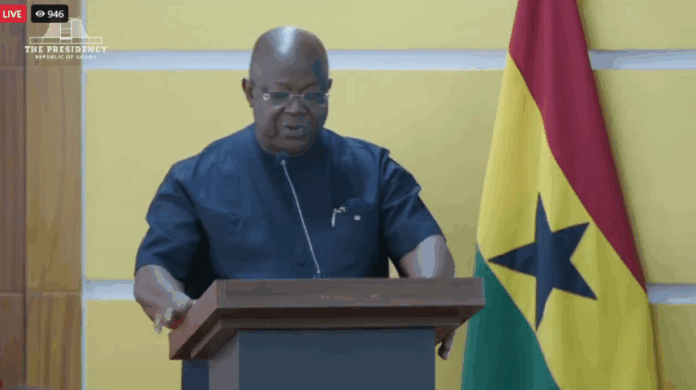An investigator with the Aircraft Accident and Incident Investigation and Prevention Bureau (AIB), Captain Paul Forjoe, has revealed that the pilot of the ill-fated Z-9 helicopter did not deem an emergency landing necessary before the crash.
Speaking to journalists during the presentation of the Z-9 Accident Report at the Flagstaff House in Accra, Captain Forjoe explained that emergency landings are typically made when a fault or abnormal condition is detected. In this case, however, the pilot appeared confident that the aircraft was under control.
“All I would say is that an emergency landing could have prevented the accident because it would have placed the pilots in a better situational awareness mode, enabling them to make decisions that might have helped avoid the crash. But let’s not kid ourselves,” he stated.
Captain Forjoe also highlighted the need for the Ghana Air Force to be equipped with enhanced flight systems and safety tools to improve operations and protect high-profile passengers.
“It’s like saying more meat never spoils the soup. These additional enhancements would really help. The Air Force understands how much they improve safety, especially for dignitaries. That’s why we’re recommending them,” he said.
He clarified, however, that the absence of these enhancements was not the cause of the accident.
“It would be wrong to suggest the accident happened because those systems were not there. That would be too far-fetched,” he added.
Regarding reports of an explosion, Captain Forjoe explained that there was no explosion prior to the crash. The Z-9 helicopter’s fuel tank, located beneath the passenger seating area, ignited upon impact.
“The aircraft was on a flight to Obuasi and back. It wasn’t going to refuel there, so it had a full fuel load. The explosion occurred only on impact,” he noted.
The investigative committee was established shortly after the tragic crash to determine its causes and recommend measures to prevent similar incidents in the future.
READ ALSO:



